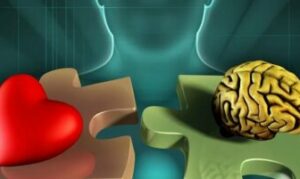From Medium/Farid Alsabeh: “In our era of scientism and objectivity, rational thought stands in a place of high authority. Factual, evidence-based claims are the gold standard of discourse, and emotions — those irrational, subterranean forces — are considered obstacles to a proper decision-making process.
[Western culture] inherited this way of thinking from the philosopher René Descartes. He distinguished between the res cogitans, the thinking portion of our minds, and the res extensa, the purely-mechanical source of drives and emotion. This philosophy is known as Cartesian dualism, and it holds humans in special regard. Our souls are the stuff of res cogitans; animals, according to Descartes, are strictly automata.
But contemporary neuroscience may be weighing against this idea. In his book Descartes’ Error, neuroscientist Antonio Damasio takes the position that our neurobiology does not corroborate this distinction between reason and emotion. Instead, they are inseparably linked in a way that reflects our complexity as human beings.”

***
Back to Around the Web











